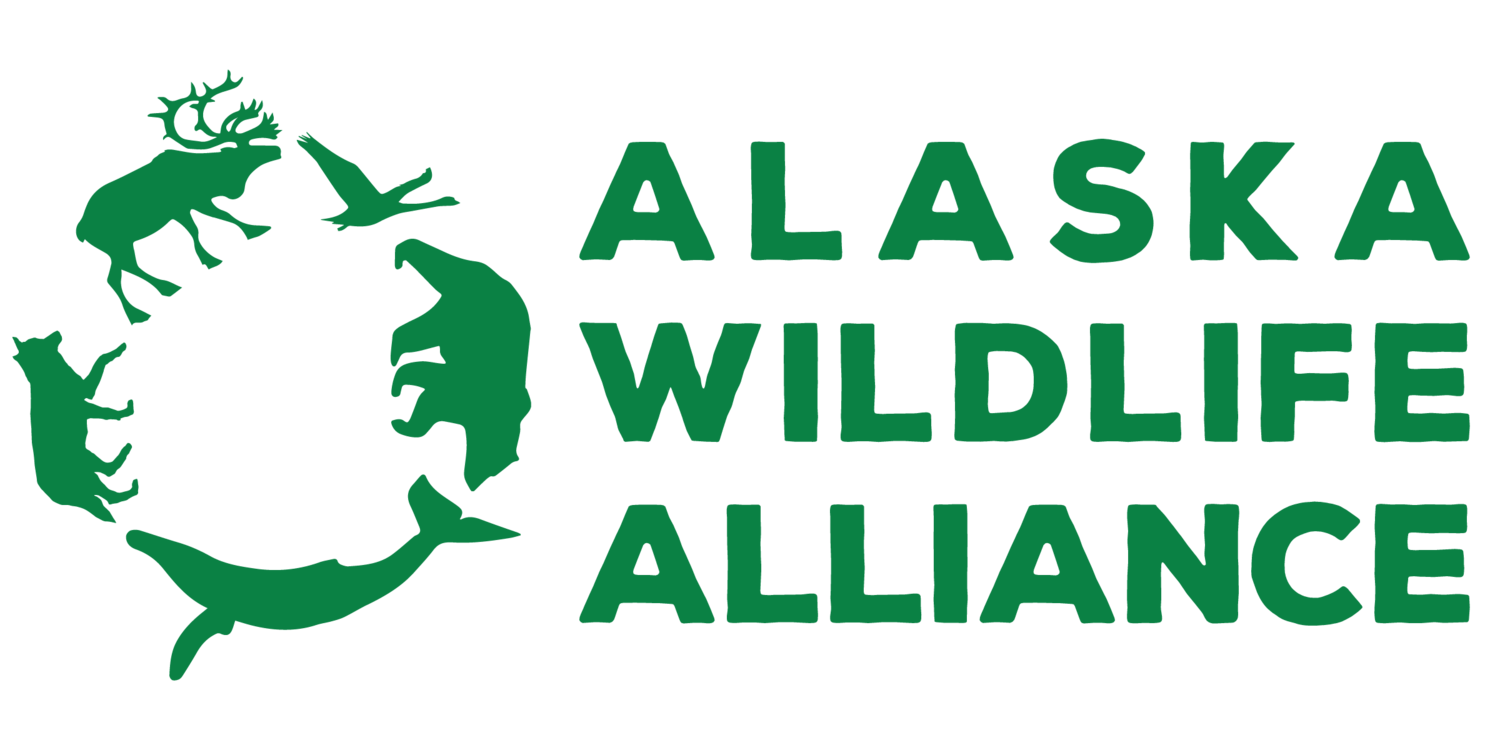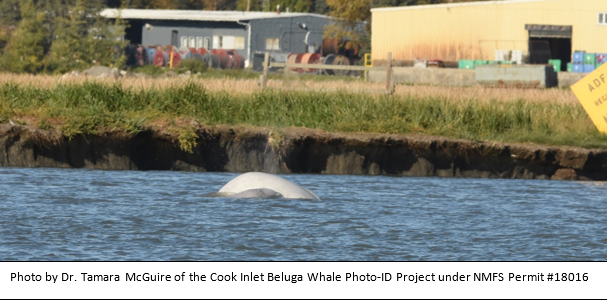Cook Inlet Beluga Whale Photo-ID Project
The Cook Inlet Beluga Whale Photo-ID Project began studying beluga whales in Cook Inlet in 2005 by photographing the whales and identifying natural markings and scars on individual animals. The scars form a sort of unique fingerprint allowing the researchers to recognize and track individual whales, proving they could use white scars on white animals to identify individuals. Over time, sighting histories are compiled for each known individual and researchers are able to learn more about the distribution, habitat use, social structure and reproduction of the Cook Inlet beluga whales. Using boat and shore-based surveys of Upper and Middle Cook Inlet, the project photographically tracks individual beluga whales identified by natural markings. And yes, they can see white scars on white whales to identify them!
For example, based on the photo below of an adult female beluga and her calf (see the smaller gray animal in front of her?), the adult was identified as “R3215”, whose nickname is “Pipecleaner”. Pipecleaner was first identified in 2009, and has been re-sighted in five different years since then, mostly in upper Cook Inlet.However, in 2017, Pipecleaner and her calf were photographed in the Kenai River (see image), proving that her home range spans at least from Eagle Bay in Knik Arm, across to the Susitna River Delta, down to the Kenai River.This was the third time Pipecleaner had been photographed with a calf, the last time was in 2012.Knowing that endangered beluga whales and their babies use the Kenai River causes concerns that people boating at high speeds in the river might not see the belugas in time to avoid hitting them.
The goals of the Cook Inlet Beluga Whale Photo-ID Project are to promote research and education that contribute to the recovery and conservation of this endangered species and to provide information to help manage human activities that might affect these belugas. Their on-water research is conducted under a scientific permit issued to the project Principal Investigator, Dr. Tamara McGuire. Dr. McGuire has been studying marine mammals for over 25 years, and is passionate about habitat use, life history, behavior, and the effects of human activities on endangered and threatened aquatic species and their habitats.
As part of AWA’s outreach and education program, we are participating in two Cook Inlet beluga whale citizen science and outreach programs including the third annual Belugas Count! event (September 21, 2019) and the Alaska Beluga Whale Monitoring Partnership (August 15-November 15, 2019). We often turn to the Cook Inlet Beluga Whale Photo-ID Project for advice and guidance, and along with others in the Alaska Beluga Whale Monitoring Partnership, we will share images we take of beluga whales with them so they can add the sightings to their database, and hopefully increase the knowledge about Cook Inlet’s endangered beluga whales. Contact us to learn more about how you can become a citizen scientist and help study beluga whales.
Do you want to learn more about the Cook Inlet Beluga Whale Photo-ID Project, about Cook Inlet’s beluga whales in general, or do you have a photograph of Cook Inlet beluga whales you want to share to see if the animal has a name? Then check out the Cook Inlet Beluga Whale Photo-ID Project’s website at www.cookinletbelugas.com. Tell them AWA sent you! 😊





